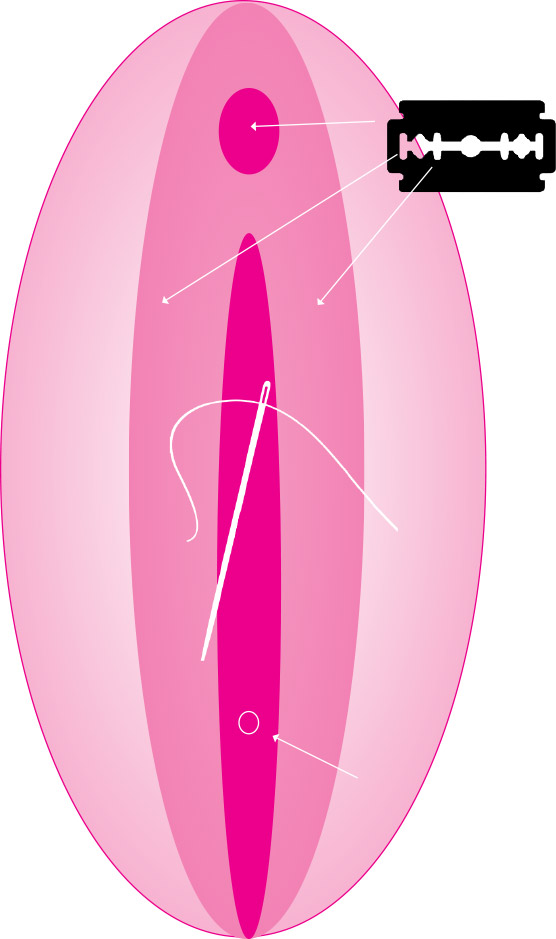Unfortunately, according to New York Times, 2 million additional cases of Female Genital Mutilation may occur over the next decade as a result of Covid 19. COVID-19 has shuttered schools and thereby disrupting programs that help protect girls from this harmful practice.
FGM is widely practiced in Nigeria, and with its large population, Nigeria has the highest absolute number of cases of FGM in the world, accounting for about one-quarter of the estimated 115–130 million circumcised women worldwide. In Nigeria, FGM has the highest prevalence in the south-south (77%) (among adult women), followed by the southeast (68%) and southwest (65%), but practiced on a smaller scale in the north, paradoxically tending to in a more extreme form. Nigeria has a population of 150 million people with the women population forming 52%. The national prevalence rate of FGM is 41% among adult women. Prevalence rates progressively decline in the young age groups and 37% of circumcised women do not want FGM to continue. 61% of women who do not want FGM said it was a bad harmful tradition and 22% said it was against religion. Other reasons cited were medical complications (22%), painful personal experience (10%), and the view that FGM is against the dignity of women (10%). However, there is still considerable support for the practice in areas where it is deeply rooted in local tradition.
I did a recent poll on FGM on social media, from people’s responses, it is obvious that Female Genital Mutilation is still going on in Africa and of course in Nigeria, even though The mental health, as well as the physical implications, are huge and devastating. If there are a lot of people advocating for this and creating awareness, this act will help people have a different mindset.
In Nigeria, after nearly 13 years of trying to make a law against FGM, it was during the governance of Goodluck Ebele Jonathan, that this act was passed into law in May 2015. It was a milestone in the talk against FGM, as it signified governmental backing against a practice that held sway in Nigeria. Violence Against Persons Prohibition Act (VAPP) 2015, the anti-FGM law, was endorsed by the Nigerian Senate in May 2015. Unfortunately, to date, no one has been convicted despite the prevalence in Nigeria. This should scare everyone. Why are these people doing this in secret? And when caught, why are they not convicted? Why is no one coming out to report this case?
According to the law, “a person who performs female circumcision or genital mutilation or engages another to carry out such circumcision or mutilation commits an offense and is liable on conviction to a term of imprisonment not exceeding 4 years or to a fine not exceeding N200,000 or both.”
According to Rachel Arowolo, whose parents are firm believers in FGM, it is simply hard to condemn or report family members who are usually the culprits of female genital mutilations. For FGM, as with many other gender-based crimes, it stays in the family. “It will be difficult for one to take anyone to court because of how closely knitted our society is. We must do more in terms of bringing about behavior change”
Why FGM should stop
FGM has no known medical benefits to women and girls. In fact, according to the UNFPA, the attendant consequence of FGM are dire.
“Complications include severe pain, shock, hemorrhage, tetanus or infection, urine retention, ulceration of the genital region and injury to adjacent tissue, wound infection, urinary infection, fever, and septicemia. Hemorrhage and infection can be severe enough to cause death,” UNFPA says. “Long-term consequences include complications during childbirth, anemia, the formation of cysts and abscesses, keloid scar formation, damage to the urethra resulting in urinary incontinence, dyspareunia (painful sexual intercourse), sexual dysfunction, hypersensitivity of the genital area, and increased risk of HIV transmission, as well as psychological effects,” the organization continued.!


Excellent blog here Also your website loads up very fast What web host are you using Can I get your affiliate link to your host I wish my web site loaded up as quickly as yours lol